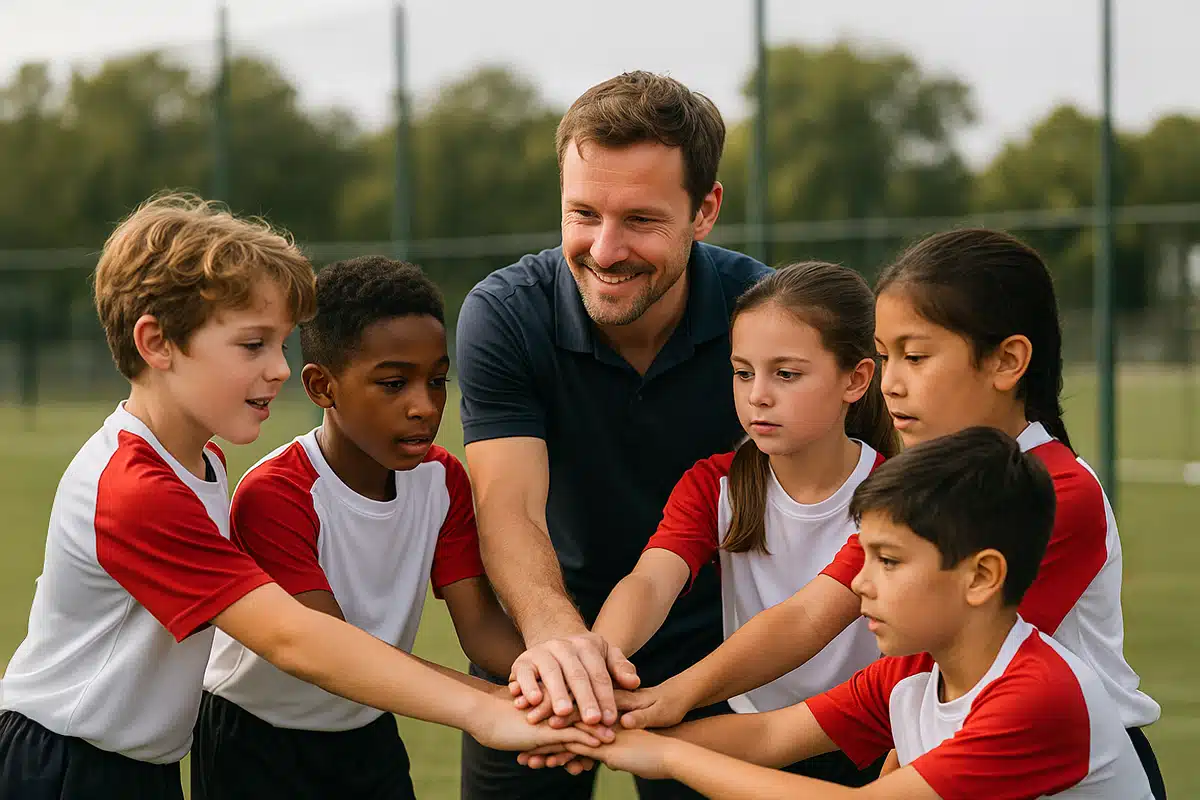
What ADHD Really Feels Like: A Day in the Life of a Distracted Mind
Step inside a child’s mind with ADHD to understand their daily struggles, challenges, and hopes—told with compassion and insight.

At first glance, youth sports appear to be all about scoring goals, sinking shots or crossing the finish line. But look a little closer, and you will see something even more powerful at play: kids developing grit, growing as individuals and learning life skills that last far beyond the field.
At Pediatric Consultations, we have seen firsthand how sports can be transformative for a child’s development. Whether they are kicking a ball or swimming laps, the experience goes well beyond the physical. It also shapes how they think, feel and grow.
Team sports naturally teach kids one of life’s most valuable skills: how to work with others. From a young age, athletes learn that success does not come from individual effort alone. It comes from passing the ball, backing up a teammate and trusting each other to play a role. For children who may struggle with social skills, sports offer structured, real-time practice in cooperation, communication and conflict resolution.
The ability to collaborate, compromise and support peers is not just helpful on the field, it is also essential in school, relationships and future workplaces.
In every season, there are missed shots, tough losses and moments of doubt. But youth sports teach kids to show up anyway. To try again. To keep moving forward even when it is hard.
This kind of perseverance (often called “grit”) is one of the most powerful predictors of long-term success. And it is not something that is easily taught in a classroom. Sports create a natural environment where kids can experience setbacks, work through frustration and learn that progress takes time.
Especially for children with ADHD, anxiety or learning challenges, these lessons in persistence and resilience can help build the confidence they need to face challenges in all areas of life.
Trying a new sport or learning a new skill involves stepping outside of one’s comfort zone. For some kids, just showing up to practice for the first time is a big win. Youth athletics encourage safe, healthy risk-taking, the kind that builds courage.
Over time, kids learn how to set goals (like making a starting lineup or improving a personal best), and how to break those goals down into manageable steps. This mindset can easily translate into schoolwork, extracurriculars and later in life, careers.
Sports provide a safe environment for kids to navigate big emotions such as joy, frustration, nervousness, disappointment and pride. Learning how to handle these emotions with maturity is a lifelong skill, and one that is built one game at a time.
Good coaches, supportive parents and a balanced approach to competition help turn wins and losses into teachable moments. With the right support, kids learn how to handle setbacks gracefully and celebrate achievements with humility, traits that define strong character.
At Pediatric Consultations, we believe that mental and emotional development are just as important as physical health. Encouraging your child to participate in sports is not just about staying active, it is about helping them build resilience, self-awareness and social skills that can shape who they become.
If you have questions about choosing the right sport for your child, managing challenges related to ADHD or anxiety, or how to balance athletics with academics, we are always willing to help guide you.

Step inside a child’s mind with ADHD to understand their daily struggles, challenges, and hopes—told with compassion and insight.

Youth sports injuries can affect more than the body. They also impact mental health. Here is how to support full recovery.

Due to a sudden serious and ongoing medical issue, Dr. Peter Halas has closed his Pediatric Consultations practice.
Dr. Halas is deeply grateful for the trust, kindness and connection shared with patients and families throughout the years. It has been an honor to care for your children and to be part of your lives.
For any ongoing medical needs or referrals, please contact your primary care provider. Dr. Halas wishes each of you continued health and happiness.